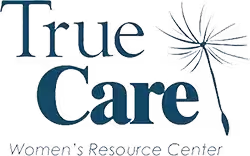Ovarian Cancer Awareness
September is National Ovarian Cancer Awareness Month. Ovarian cancer is difficult to detect because the early symptoms are often mild and are not recognized as ovarian cancer. Symptoms include bloating, indigestion, frequent urination, and abdominal or pelvic pain. Only 19% of ovarian cancers are found in the early stages when the survival rate is up to 90%. If ovarian cancer is found in the late stages, the survival rate drops to only 30.6%.
BRCA Genes
One indicator of your risk for developing ovarian cancer is a common genetic mutation. Everyone carries BRCA genes. BRCA1 is a gene on chromosome 17 and BRCA2 is on chromosome 13. These BRCA genes produce tumor suppressant proteins that help protect us from cancer. If the BRCA1 and BRCA2 have a common inherited mutation, it can lead to many types of cancers including breast, ovarian, pancreatic and prostate cancer. The BRCA mutations can be inherited from a person’s mother or father. If a parent has the mutation, the child has a 50% chance of also having the mutation. Though rare in the general population, for women with a family history of the BRCA mutation or early breast cancer under age 50, it is recommended that they get tested for the BRCA mutation. If they test positive they can talk with their doctor about steps to take to lower their risk for multiple cancers including ovarian cancer.
Risk Factors for Ovarian Cancer
Risk factors for ovarian cancer according to the Mayo Clinic include:
- Older age: More common in women over the age of 50.
- BRCA gene mutation: This is common in younger women with ovarian cancer.
- Estrogen hormone replacement: Higher doses and longer estrogen use equals higher risk.
- Early menstruation or late menopause
- Never being pregnant
- Smoking, Fertility treatments
- Using intra-uterine devices
- Polycystic Ovarian Syndrome
In general, be aware of your health. If you notice changes in the way you feel including frequent bloating, indigestion, pain, and or frequent urination, be sure to see your doctor and have a check-up.
